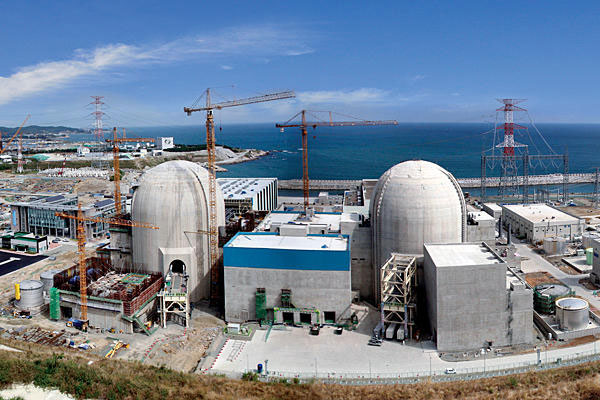Korea closed two nuclear power plants for counterfeit components
On November 5, the South Korean government announced that the country was forced to close two nuclear power plants to replace the parts that were supplied with fake quality certificates. The case could make the country power-hungry.
This information was announced by the Minister of Economy Hong Suk-Woo before the press. At the same time, Mr. Hong emphasized that the foregoing counterfeit devices are not 'critical' devices and do not cause nuclear insecurity.
Since the beginning of the year, a series of system incidents at the reactors have occurred, causing the Korean authorities to conduct a safety review. However, Mr. Hong also said that the above fake components are not the cause of the problem.
Two suspended reactors are located in the Yeonggwang nuclear complex in southwestern Korea. It is expected that these kilns will be shut down until January 2013 so that engineers can replace more than 5000 fuses, cooling fans and other equipment imported from 8 different suppliers.

Since the beginning of this year many Korean nuclear reactors have had problems
'Full safety checks are needed in the above two reactors, where unlicensed equipment is used extensively , ' Hong said. 'And the inevitable is that we will face unprecedented power shortages in the coming winter as the two reactors stop working.'
Korea currently operates a total of 23 nuclear power plants, meeting about 35% of its electricity needs. Seoul plans to build 16 more reactors before 2030. Last month authorities had to suspend two 1000MW reactors after the system went down. It was also because of this error that another reactor at Yeonggwang automatically halted in July.
If the two reactors at Yeonggwang are not operated again on schedule, Mr Hong said South Korea's power output will fall by 300,000kW in January.'Energy authorities are planning an emergency response plan with a serious power shortage. The plan will be implemented from mid-November , "said the Minister of Economy.
Under South Korea's nuclear safety regulations, all equipment supplied must be issued with a quality and safety certificate from 12 authorized Seoul international organizations. But 8 suppliers that Mr. Hong disclosed have falsified 60 certificates of nearly 7700 devices totaling 750,000 USD.
About 5200 of these devices were assembled into five reactors but 99% of the components at Yeonggwang's factories were closed. Minister Hong said the prosecution agency will investigate suppliers and employees at South Korea's Nuclear and Hydropower Company.
In May last year, five senior engineers at Korea's oldest nuclear power plant were found guilty of trying to conceal potentially dangerous problems. Among them, the chief engineer of the Gori-1 reactor was charged with violating nuclear safety laws. The incident raises doubts about safety at the reactors and the investigating agency has entered.
- Korea detected cracks in nuclear power plants
- Germany closed all nuclear power plants by 2022
- Germany closed a series of nuclear power plants
- Nuclear power against climate change
- Korean nuclear power sticks clones
- Potential threat from old nuclear plants
- The most powerful earthquake in history, Korea stopped 4 nuclear reactors
- Vietnam nuclear power needs to have standards
- The first floating nuclear power plant will operate in 2016
- Iran-Russia agreed to build 2 more nuclear power plants
- Nuclear power plant floating on water
- Vietnam was back in time to build the first nuclear power
 Is the magnetic North Pole shift dangerous to humanity?
Is the magnetic North Pole shift dangerous to humanity? Washington legalizes the recycling of human bodies into fertilizer
Washington legalizes the recycling of human bodies into fertilizer Lightning stone - the mysterious guest
Lightning stone - the mysterious guest Stunned by the mysterious sunset, strange appearance
Stunned by the mysterious sunset, strange appearance